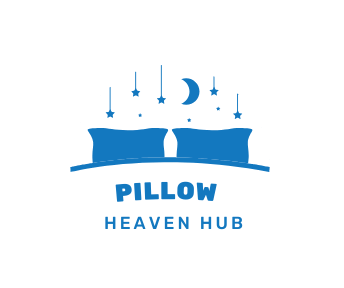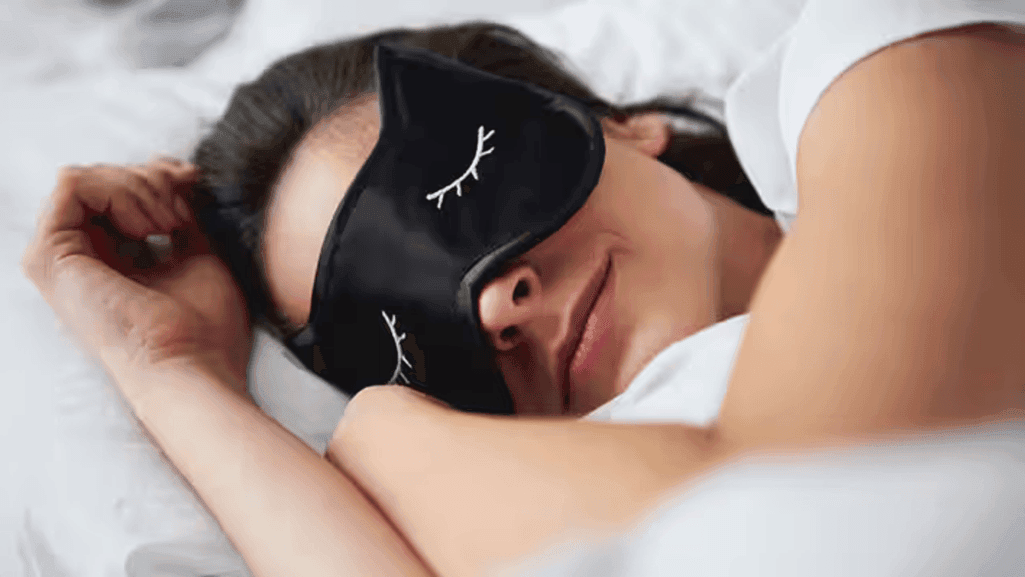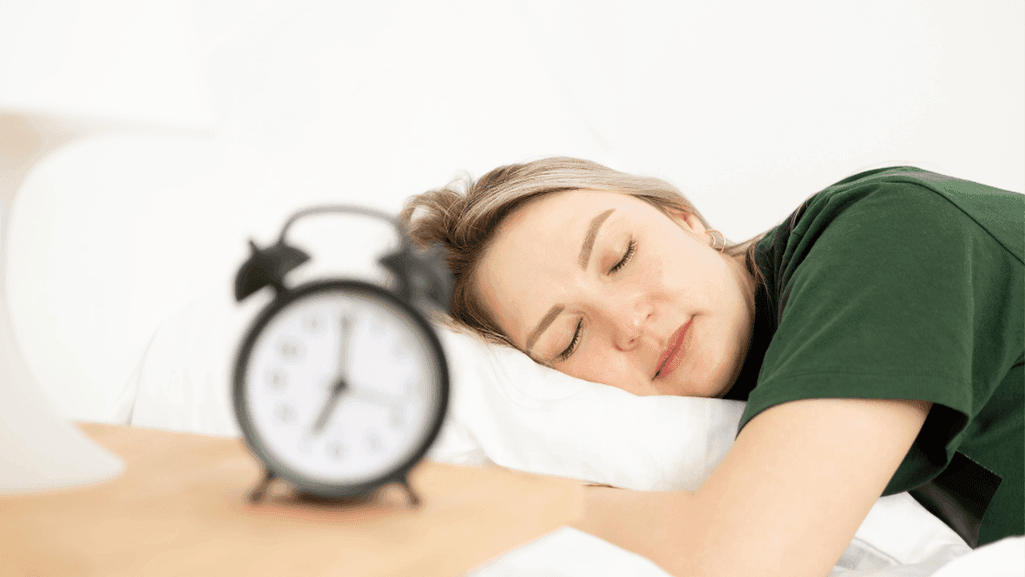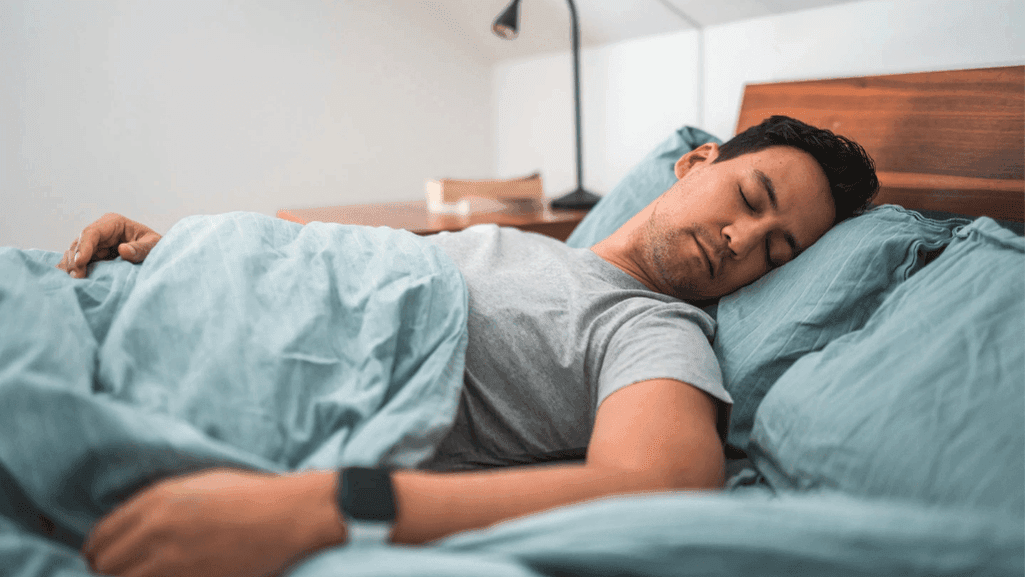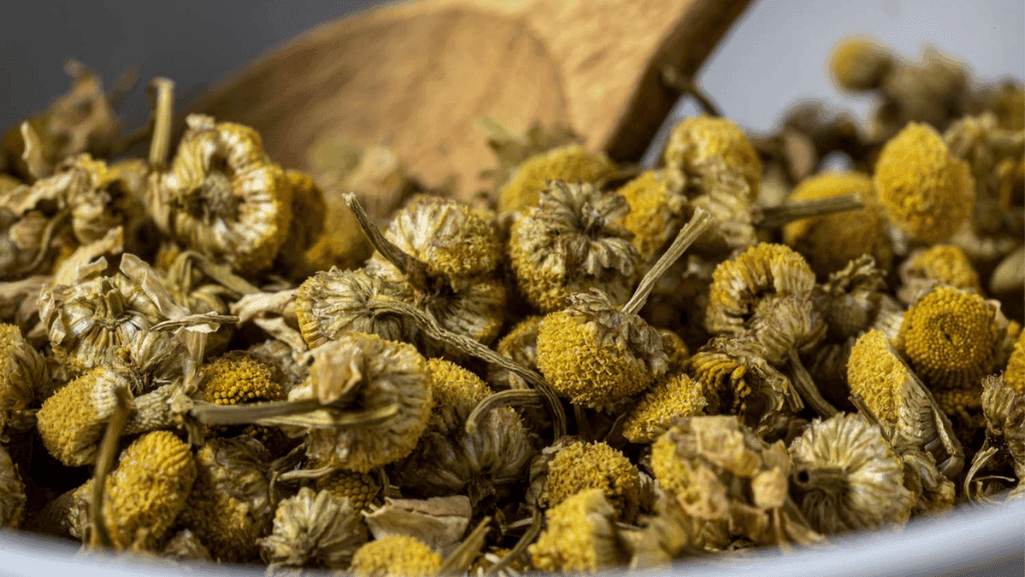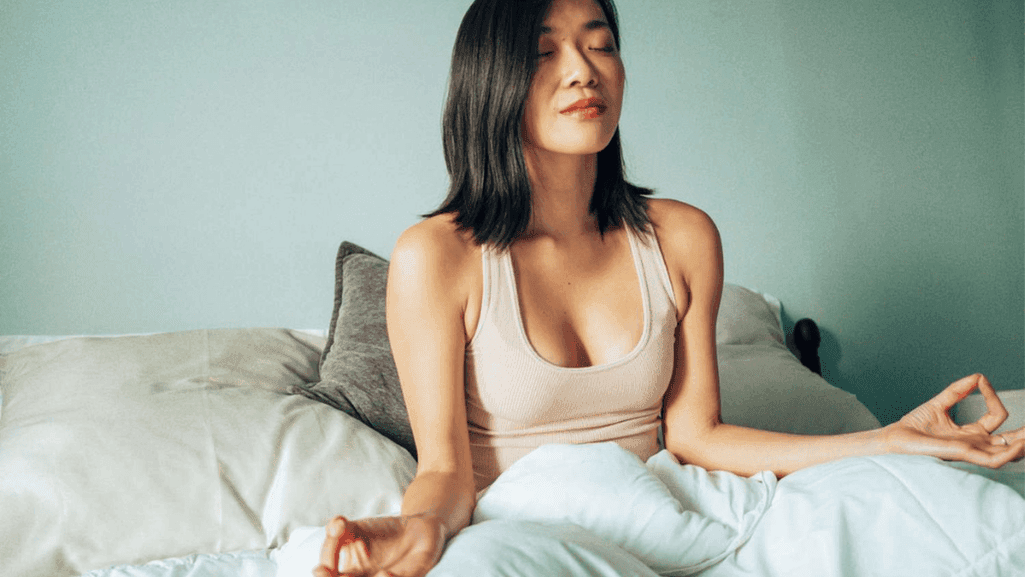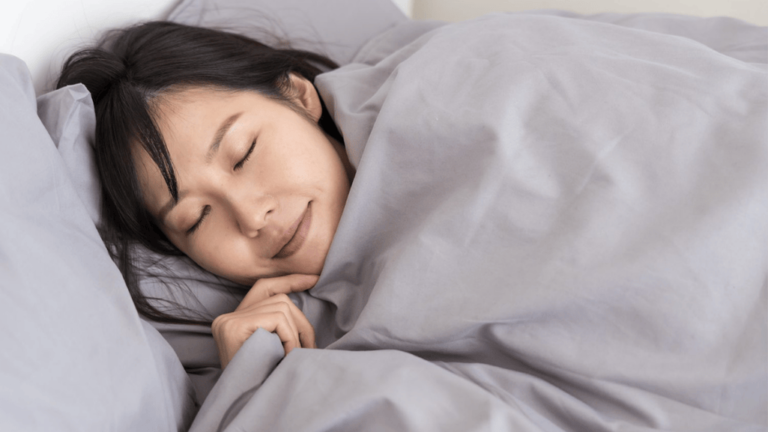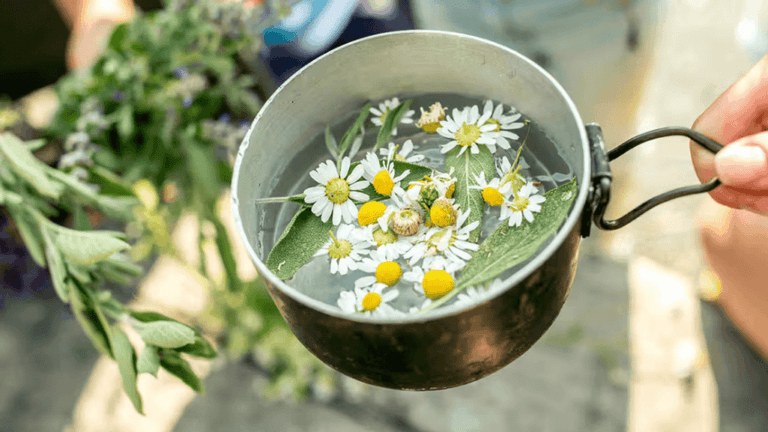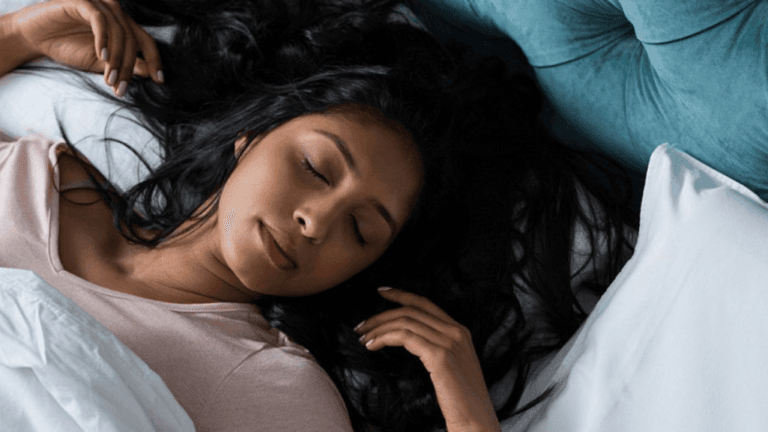In today’s fast-paced world, getting a good night’s sleep has become increasingly challenging. With around 20% of adults experiencing occasional symptoms of insomnia, it’s no wonder that many are turning to natural sleep aids as an alternative to melatonin supplements. While melatonin is a popular choice, it’s not the only option available. Herbal sleep remedies, such as valerian root, magnesium, lavender, and passionflower, have gained attention as potential insomnia treatments and sleep supplements.
Although melatonin supplements are generally provided in doses of 3–10 milligrams (mg) before bedtime, some individuals may experience side effects like headaches, nausea, and daytime sleepiness. For those seeking melatonin alternatives, valerian root is commonly taken in doses of 300–600 mg for sleep improvement, with short-term intake appearing to be safe for adults with minor and infrequent side effects.
Magnesium supplementation has also shown promise in treating insomnia, with a combination of magnesium, melatonin, and vitamin B demonstrating positive results. Most studies on magnesium use doses of 225–729 mg daily, but it’s important not to exceed 350 mg per day without consulting a healthcare professional.
Lavender and passionflower have also emerged as potential herbal sleep remedies. Simply smelling lavender oil before sleep can improve sleep quality in those with or without insomnia, while passionflower tea or extract may slightly improve sleep quality based on a recent study showing significant improvements in sleep parameters compared to a placebo in people with insomnia.
Key Takeaways
- Natural sleep aids, such as valerian root, magnesium, lavender, and passionflower, offer alternatives to melatonin supplements for improving sleep quality.
- Valerian root, taken in doses of 300–600 mg, appears to be safe for short-term use in adults with minor side effects.
- Magnesium supplementation, often in combination with melatonin and vitamin B, has shown effectiveness in treating insomnia, with doses ranging from 225–729 mg daily.
- Lavender aromatherapy and passionflower tea or extract have demonstrated potential in reducing anxiety and improving sleep quality in certain studies.
- While natural sleep aids can be helpful, it’s essential to consult with a healthcare professional before incorporating them into your sleep routine, especially if you have pre-existing health conditions.
The Importance of Quality Sleep
Getting a good night’s sleep is crucial for maintaining optimal physical and mental health. Quality sleep allows your body and mind to recharge, leaving you refreshed and alert when you wake up. Healthy sleep also helps the body remain healthy and stave off diseases. Without enough sleep, the brain cannot function properly, affecting your ability to concentrate, think clearly, and process memories.
Benefits of Adequate Sleep
Consistently getting a full night’s sleep offers numerous health benefits. It can help improve your learning and problem-solving skills, enhance your memory, and boost your creativity. Quality sleep also plays a vital role in maintaining a healthy weight, reducing the risk of developing chronic conditions such as diabetes and cardiovascular disease. According to the Sleep Foundation, adults who get sufficient sleep tend to have better overall health and a lower risk of accidents and injuries.
Risks Associated with Sleep Deprivation
Sleep deprivation can lead to a host of negative consequences. Lack of sleep can impair judgment, affect mood, and increase the likelihood of accidents. Chronic sleep deprivation has been linked to an increased risk of obesity, diabetes, cardiovascular disease, and even early mortality. Studies have shown that individuals who consistently get less than the recommended amount of sleep are more prone to developing mental health issues such as depression and anxiety.
“Sleep is the golden chain that ties health and our bodies together.” – Thomas Dekker
Common Causes of Sleep Disturbances
Various factors can contribute to sleep disturbances and insomnia. Stress, anxiety, and depression are among the most common psychological causes of sleep problems. Other potential culprits include:
- Irregular sleep schedules
- Consuming caffeine or alcohol close to bedtime
- Excessive screen time before bed
- Uncomfortable sleep environment (e.g., noise, light, temperature)
- Certain medications
By identifying and addressing these common causes of sleep disturbances, you can take steps to improve your sleep quality. Simple lifestyle changes, such as establishing a consistent sleep schedule, creating a relaxing bedtime routine, and optimizing your sleep environment, can make a significant difference in your ability to get a good night’s rest. The Pillow Haven Hub offers valuable tips and resources for enhancing sleep health.
| Sleep Duration | Effects on Health |
|---|---|
| 7-9 hours per night | Optimal for overall health and well-being |
| Less than 7 hours per night | Increased risk of obesity, diabetes, cardiovascular disease, and mental health issues |
| More than 9 hours per night | May indicate underlying health issues or poor sleep quality |
Understanding Melatonin and Its Role in Sleep
Melatonin, a hormone naturally produced by the body, plays a crucial role in regulating the sleep-wake cycle, also known as the circadian rhythm. Often referred to as the “sleep hormone,” melatonin levels typically rise in the evening and fall in the morning, signaling to the brain that it’s time to sleep. This natural process has led to the development of melatonin supplements as a popular sleep aid, particularly for individuals experiencing circadian rhythm disruptions, such as those caused by jet lag or shift work.
Numerous studies have explored the efficacy of melatonin in promoting better sleep. Research has shown that melatonin can help improve circadian rhythm sleep disorders in both adults and children who are blind. Additionally, melatonin has been found to reduce the time needed to fall asleep and advance the start of sleep in individuals with delayed sleep phase disorder. Evidence also suggests that melatonin may slightly reduce the time it takes to fall asleep in cases of insomnia, providing a natural alternative to traditional sleep medications.
The therapeutic potential of melatonin extends beyond sleep disorders. Studies have investigated the use of melatonin in treating jet lag, with findings indicating that it can improve symptoms such as alertness and daytime sleepiness. Melatonin has also shown promise in reducing evening confusion and restlessness in people with Alzheimer’s disease, highlighting its potential benefits for cognitive health.
“Melatonin, often referred to as the ‘sleep hormone,’ plays a vital role in regulating our natural sleep-wake cycle. By understanding how this hormone works and exploring the potential benefits of melatonin supplements, we can take steps towards improving our sleep quality and overall well-being.” – Dr. Sarah Thompson, Sleep Specialist
While melatonin supplements are generally considered safe for short-term use, it’s essential to be aware of potential side effects and interactions. Common side effects may include headache, dizziness, nausea, and drowsiness, while less common side effects can range from feelings of depression and anxiety to reduced alertness and disorientation. Individuals with autoimmune diseases should exercise caution when considering melatonin supplements due to potential risks. It’s always advisable to consult with a healthcare professional before starting any new supplement regimen, as melatonin may interact with certain medications, such as anticoagulants, blood pressure medications, and diabetes medications.
The connection between melatonin and sleep has been a topic of interest for researchers for decades. Studies dating back to the early 20th century have explored the relationship between pineal gland function, melatonin production, and various physiological processes. More recent research has delved into the economic implications of sleep disorders, emphasizing the significant costs associated with these conditions and the potential role of melatonin in addressing them. As our understanding of melatonin and its impact on sleep continues to grow, so does the potential for developing targeted therapies and interventions to promote better sleep health and overall well-being. By prioritizing sleep and exploring natural solutions like melatonin, we can take proactive steps towards enhancing our quality of life and embracing the restorative power of a good night’s rest. To learn more about the benefits of sleeping with or without a pillow, visit Pillow Haven Hub for additional insights and tips.
Potential Drawbacks of Melatonin Supplements
While melatonin supplements have gained popularity as a natural sleep aid, it’s essential to be aware of their potential drawbacks. Despite being generally safe for short-term use, melatonin side effects and interactions with other medications are important considerations. Additionally, concerns about melatonin dependency and tolerance have been raised, prompting the need for further research on the long-term effects of melatonin supplementation.
Side Effects and Interactions
Although melatonin is considered safe for most adults when used short-term, some individuals may experience side effects. The most common melatonin side effects include headache, dizziness, nausea, and daytime drowsiness. Less common side effects might include vivid dreams or nightmares, short-term feelings of depression, irritability, stomach cramps, diarrhea, constipation, decreased appetite, urinary incontinence at night, increased risk of falls, seizures, confusion, disorientation, mood swings, and reduced alertness.
Melatonin supplements can also interact with certain types of medicines, affecting their effectiveness or causing unwanted side effects. These include medications that slow blood clotting, prevent seizures, control high blood pressure, manage diabetes, suppress the immune system, and those broken down by the liver. Before taking melatonin supplements, it’s advised to consult a healthcare provider, especially if you have any pre-existing health conditions or are taking other medications.
Dependency and Tolerance Concerns
While research on the long-term effects of melatonin supplementation is limited, there are concerns about the potential for developing a dependency or tolerance to melatonin with prolonged use. Some individuals may find that they require higher doses of melatonin over time to achieve the same sleep-promoting effects, leading to concerns about the safety and sustainability of long-term use.
Furthermore, melatonin supplements available over the counter can vary widely in their actual melatonin content. A study found that the melatonin content in supplements ranged from -83% to +478% of the labeled content, highlighting the need for better regulation and quality control in the supplement industry.
| Potential Drawback | Description |
|---|---|
| Side Effects | Headache, dizziness, nausea, daytime drowsiness, vivid dreams, short-term depression, irritability, stomach cramps, diarrhea, constipation, decreased appetite, urinary incontinence, increased risk of falls, seizures, confusion, disorientation, mood swings, reduced alertness |
| Interactions | Medications that slow blood clotting, prevent seizures, control high blood pressure, manage diabetes, suppress the immune system, and those broken down by the liver |
| Dependency and Tolerance | Potential for developing a dependency or tolerance with prolonged use, requiring higher doses over time |
| Quality Control | Actual melatonin content in supplements can vary widely from the labeled content, ranging from -83% to +478% |
While melatonin supplements may offer benefits for some individuals struggling with sleep issues, it’s crucial to approach their use with caution and under the guidance of a healthcare professional. By understanding the potential side effects, interactions, and long-term concerns associated with melatonin supplementation, individuals can make informed decisions about their sleep health and explore alternative natural sleep aids and lifestyle changes to promote restful, restorative sleep.
Natural Melatonin Alternatives
For those seeking alternatives to melatonin supplements, nature offers a wealth of options that can help promote better sleep without the potential drawbacks. These natural remedies harness the power of herbs, minerals, and aromatherapy to create a soothing environment conducive to a peaceful night’s rest.
Valerian Root
Valerian root, a perennial flowering plant native to Europe and Asia, has been used for centuries to support healthy sleep. This herb contains compounds that can help calm the nervous system, reduce anxiety, and improve sleep quality. Valerian root extract has been traditionally used in Chinese medicine and may be more effective when taken over longer periods.
According to research, valerian root has been used for more than 2,000 years to support healthy sleep and treat sleep problems and associated disorders.
Magnesium
Magnesium is an essential mineral that plays a crucial role in numerous bodily functions, including sleep regulation. This mineral has relaxing qualities and may support a healthy nervous system, whole-body health, and sleep health when taken as a supplement. Nearly half of Americans are at risk for a magnesium deficiency, according to the USDA, making magnesium supplements an attractive option for those seeking to improve their sleep quality.
| Supplement | Recommended Dosage |
|---|---|
| Magnesium | 200-400 mg per day |
| GABA | 100 mg per day |
| L-theanine | 100-400 mg per day |
Lavender
Lavender, a fragrant herb known for its calming properties, can be an effective natural sleep aid. Lavender aromatherapy, either through essential oils or sachets, can help create a relaxing environment that promotes better sleep. A 2017 study found that lavender essential oil positively impacted subjects with mild sleep disturbances, showcasing its potential as a melatonin alternative.
Passionflower
Passionflower, a climbing vine native to the Americas, has been used for centuries to treat anxiety and insomnia. Passionflower tea or extract may help slightly improve sleep quality in some individuals by promoting relaxation and reducing stress. Its gentle, soothing effects make it an appealing choice for those seeking a natural way to unwind before bedtime.
- Valerian root extract has been traditionally used in Chinese medicine and may be more effective when taken over longer periods.
- Nearly half of Americans are at risk for a magnesium deficiency, according to the USDA.
- Lavender essential oil has been found to positively impact subjects with mild sleep disturbances in a 2017 study.
- Passionflower tea or extract may help slightly improve sleep quality in some individuals.
Lifestyle Changes for Better Sleep
In addition to trying natural sleep aids, making lifestyle changes can significantly improve your sleep quality. By incorporating simple yet effective strategies into your daily routine, you can create a foundation for restful and rejuvenating sleep. Let’s explore some key lifestyle modifications that can help you achieve better sleep and overall well-being.
Establishing a Consistent Sleep Schedule
One of the most important steps in improving your sleep is establishing a consistent sleep schedule. By going to bed and waking up at the same time every day, even on weekends, you can help regulate your body’s internal clock, known as the circadian rhythm. This consistency allows your body to naturally align with its sleep-wake cycle, making it easier to fall asleep and wake up feeling refreshed.
According to a 2020 review of 41 studies, consistent sleep and waking times can positively impact long-term sleep quality. The review highlights the importance of maintaining a regular sleep schedule for optimal sleep health. By prioritizing a consistent bedtime and wake time, you can set the stage for more restful and restorative sleep.
Creating a Sleep-Conducive Environment
Your bedroom setup plays a crucial role in promoting better sleep. To create a sleep-conducive environment, focus on keeping your bedroom dark, quiet, and cool. Invest in comfortable bedding, such as a supportive mattress and pillows that suit your sleeping position. Consider using blackout curtains or an eye mask to block out any unwanted light, and use earplugs or a white noise machine to minimize disruptive sounds.
The National Center for Biotechnology Information suggests that the ideal bedroom temperature for better sleep should be around 65 to 68 degrees Fahrenheit. Maintaining a cool and comfortable temperature can help you fall asleep faster and experience more restful sleep throughout the night. Additionally, ensure your bedroom is well-ventilated and free from allergens that may disrupt your sleep.
Limiting Screen Time Before Bed
In today’s digital age, it’s common to spend a significant amount of time in front of electronic devices such as smartphones, tablets, and computers. However, the blue light emitted by these devices can interfere with your body’s production of melatonin, the hormone that regulates your sleep-wake cycle. To minimize the impact of blue light on your sleep, it’s essential to limit your screen time before bed.
The Centers for Disease Control and Prevention emphasizes the impact of light exposure on regulating the body’s internal clock for improved sleep. Try to avoid using electronic devices at least an hour before bedtime, and instead, engage in relaxing activities such as reading a book, taking a warm bath, or practicing gentle stretching or meditation. If you must use a device, consider using blue light-blocking glasses or enabling the night mode feature to reduce the amount of blue light exposure.
| Lifestyle Change | Benefits |
|---|---|
| Consistent Sleep Schedule | Regulates circadian rhythm, improves sleep quality |
| Sleep-Conducive Environment | Promotes faster sleep onset, reduces sleep disturbances |
| Limiting Screen Time | Minimizes blue light exposure, supports melatonin production |
By implementing these lifestyle changes, you can create a solid foundation for better sleep. Remember, small steps can lead to significant improvements in your sleep quality and overall well-being. Embrace these changes as an opportunity to prioritize your sleep health and experience the transformative power of restful nights.
Herbal Teas and Sleep-Promoting Beverages
If you’re looking for a natural way to unwind before bed and promote a restful night’s sleep, consider sipping on a soothing herbal tea or a sleep-promoting beverage. Certain drinks have been traditionally used to help relax the mind and body, making it easier to drift off into a peaceful slumber.
One of the most popular bedtime teas is chamomile tea. This gentle, caffeine-free herbal tea is known for its calming effects on the nervous system. A study conducted on women after childbirth found that consuming chamomile tea for two weeks led to improved sleep quality and reduced symptoms of anxiety and depression. The flavonoids present in chamomile tea are believed to be responsible for its sleep-promoting benefits.
Another beverage that has gained attention for its potential sleep-enhancing properties is tart cherry juice. Rich in melatonin, a hormone that regulates the sleep-wake cycle, tart cherry juice may help increase melatonin levels in the body and improve sleep duration and quality. A study involving healthy adults found that consuming tart cherry juice resulted in significant improvements in sleep parameters compared to a placebo.
Warm milk has long been a traditional remedy for sleeplessness, and for good reason. Milk contains tryptophan, an amino acid that can help induce sleepiness, as well as calcium and magnesium, which are known to promote relaxation. While more research is needed to confirm the sleep-promoting effects of warm milk, many people find it to be a comforting and effective bedtime ritual.
“Herbal teas and sleep-promoting beverages offer a natural and gentle way to support better sleep quality. By incorporating these drinks into your bedtime routine, you may find it easier to relax, unwind, and drift off into a restful slumber.”
When choosing bedtime teas, it’s important to consider factors such as safety, quality, and personal preferences. Here are some key points to keep in mind:
- Opt for teas that are caffeine-free to avoid stimulating effects.
- Look for teas that contain sleep-promoting ingredients such as valerian root, passionflower, or lemon balm.
- Choose teas from reputable brands that prioritize quality and transparency in their sourcing and production processes.
- Be mindful of any potential interactions with medications or health conditions, and consult with a healthcare professional if you have concerns.
| Bedtime Tea | Key Ingredients | Potential Benefits | Price Range |
|---|---|---|---|
| Traditional Medicinals Organic Nighty Night Tea Extra Valerian | Valerian root (450mg per serving), passionflower, lemon balm | May improve sleep quality, reduce anxiety, and promote relaxation | Around $13 |
| Celestial Seasonings Chamomile Tea | Chamomile | May improve sleep quality and reduce symptoms of anxiety and depression | Approximately $17 for 20 servings |
| Buddha Teas Organic Passion Flower Tea | Passionflower | May act as a natural sedative, relieve anxiety, and improve sleep quality | Price information not provided |
| Yogi Honey Lavender Stress Relief Tea | Lavender, lemon balm, chamomile (1,676mg herbal blend per tea bag) | May reduce stress, promote relaxation, and enhance sleep quality | About $16 for 16 tea bags |
While herbal teas and sleep-promoting beverages can be a helpful addition to your bedtime routine, it’s important to remember that they should be used in conjunction with other healthy sleep habits. Establishing a consistent sleep schedule, creating a sleep-conducive environment, and limiting screen time before bed are all important factors in promoting better sleep quality.
By incorporating herbal teas and sleep-promoting beverages into a well-rounded sleep hygiene routine, you may find yourself drifting off into a more restful and rejuvenating slumber night after night.
Relaxation Techniques for Improved Sleep
In today’s fast-paced world, where almost a third of adults experience chronic insomnia or persistent difficulties in falling or staying asleep, finding effective ways to unwind and promote better sleep is crucial. Even for individuals without insomnia, stress and anxiety can make falling and staying asleep challenging. Incorporating relaxation techniques for sleep into your bedtime routine can help calm your mind and body, making it easier to drift off into a peaceful slumber.
Deep Breathing Exercises
Deep breathing exercises, such as diaphragmatic breathing, can reduce stress and increase relaxation. This technique involves taking slow, deep breaths that originate from the diaphragm rather than the chest. A slightly more advanced breathing technique involves inhaling for 4 seconds, holding for 7 seconds, and exhaling for 8 seconds. Focusing on your breath can help quiet the mind and promote a sense of tranquility.
Progressive Muscle Relaxation
Progressive muscle relaxation, also known as progressive relaxation, is a technique that involves methodically tensing and relaxing different muscle groups in your body. This practice assists in recognizing and relieving muscle tension and stress, aiding in physical and emotional relaxation. By systematically working through the various muscle groups, from your toes to your head, you can release tension and promote a deep sense of relaxation throughout your entire body.
“Relaxation techniques, such as deep breathing exercises and progressive muscle relaxation, can be incredibly effective in promoting better sleep and reducing stress levels.” – Dr. Sarah Johnson, Sleep Specialist
Meditation and Mindfulness Practices
Meditation and mindfulness practices have gained popularity as effective tools for calming racing thoughts and quieting the mind before bed. Techniques such as body scans, a visualization exercise that helps create a sense of well-being in the body, and yoga nidra, a meditative yoga practice that can induce calmness and improve sleep quality, are excellent options to consider. Guided imagery techniques, which engage the senses and reduce stress, can also promote good sleep quality.
It is recommended to combine relaxation exercises with other improvements to sleep hygiene, such as maintaining a consistent sleep schedule and ensuring a quiet, dark, and comfortable sleep environment free of distractions. Repetitive and ongoing use of relaxation exercises is usually more effective than short-term use. Additionally, advancements in sleep technology, such as wearable trackers and smart sleep devices, can offer personalized insights into your sleep habits and health, helping you optimize your relaxation techniques for improved sleep.
| Relaxation Technique | Benefits |
|---|---|
| Deep Breathing Exercises | Reduces stress, increases relaxation |
| Progressive Muscle Relaxation | Relieves muscle tension, promotes physical and emotional relaxation |
| Meditation and Mindfulness | Calms racing thoughts, quiets the mind, improves sleep quality |
While relaxation techniques can be highly beneficial for improving sleep, it is important to note that certain individuals, such as those with epilepsy, psychiatric conditions, or a history of trauma, may need to consult their doctors before trying these practices. By incorporating relaxation techniques for sleep into your nightly routine, you can take a proactive step towards achieving the restful, restorative sleep your body and mind crave.
Sleep Hygiene Tips
Forming good habits and establishing beneficial routines are central to maintaining overall health and well-being. Sleep hygiene is a crucial aspect of this process, as it involves putting yourself in the best position to sleep well each night. By making simple changes to your daily habits and bedtime routine, you can significantly improve your sleep quality and reap the numerous benefits of a well-rested mind and body. Improving sleep hygiene is a low-cost, low-risk approach that can be an effective part of a public health strategy to address the widespread problems of insufficient sleep and insomnia in America.
Maintaining a Regular Exercise Routine
Engaging in regular physical activity during the day can greatly support your body’s natural circadian rhythm and promote better sleep at night. Exercise helps to reduce stress, improve mood, and increase feelings of relaxation, all of which contribute to a more restful night’s sleep. However, it’s essential to avoid exercising too close to bedtime, as the stimulating effects of physical activity can make it more difficult to fall asleep. Aim to complete your workouts at least a few hours before your planned bedtime to allow your body sufficient time to unwind and prepare for sleep.
Avoiding Caffeine and Alcohol Close to Bedtime
Caffeine and alcohol are two substances that can significantly disrupt your sleep patterns when consumed close to bedtime. Caffeine, a stimulant found in coffee, tea, and various soft drinks, can remain in your system for several hours, making it harder to fall asleep and reducing the overall quality of your sleep. Similarly, while alcohol may initially make you feel drowsy, it can lead to fragmented and less restorative sleep later in the night. To promote better sleep hygiene, it’s recommended to avoid caffeine in the late afternoon and evening and limit alcohol consumption, especially in the hours leading up to bedtime.
By incorporating these sleep hygiene tips into your daily routine, you can create an environment and mindset that is conducive to restful, rejuvenating sleep. Remember, prioritizing sleep is essential for maintaining optimal health and well-being, so treat it as a priority and make gradual adjustments to your habits and routines as needed. With a little effort and consistency, you’ll be on your way to enjoying the numerous benefits of a good night’s sleep.
